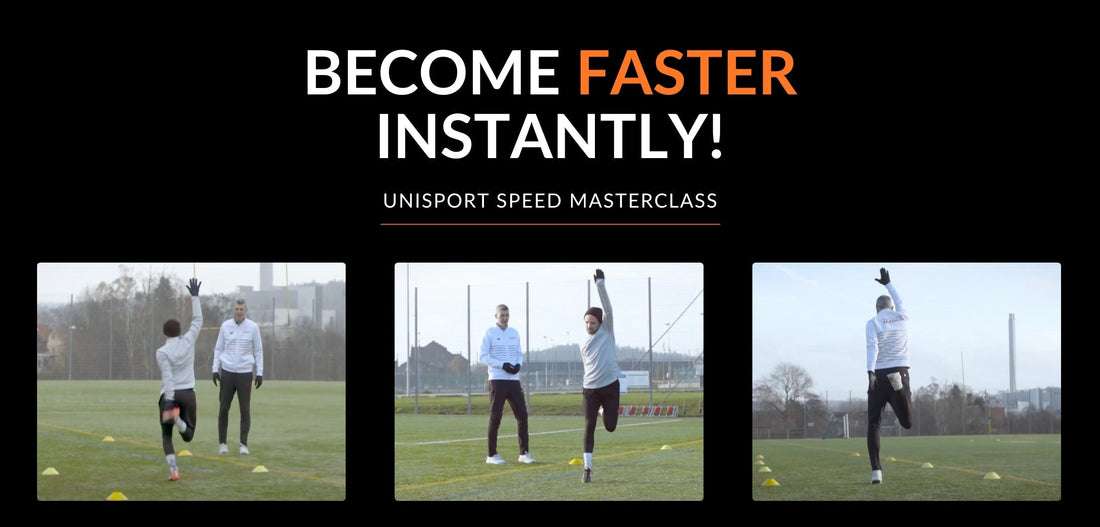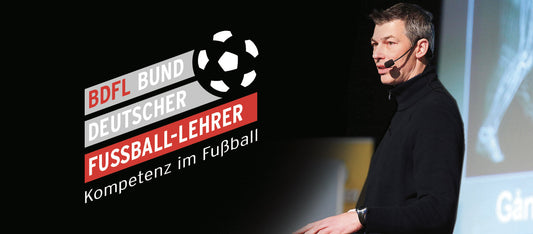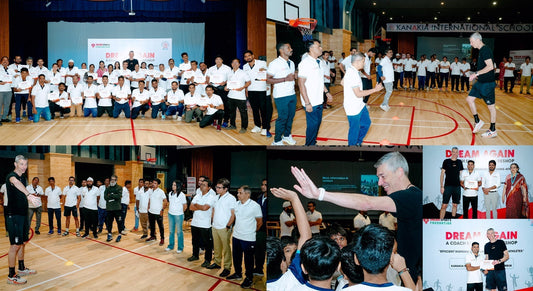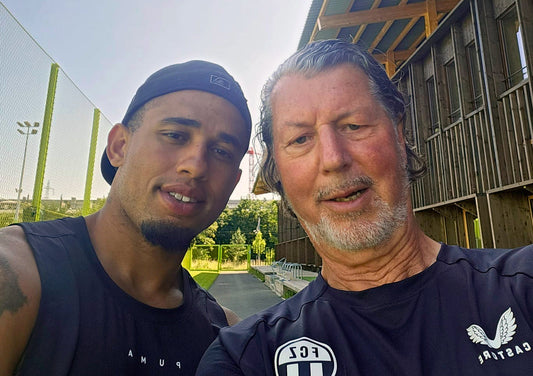The Ultimate Guide to Speed Training for Youth Soccer Players
Why Speed Matters in Modern Football
Football has changed dramatically over the years. If you compare today’s game to 20 years ago, you’ll notice one clear difference: it’s faster than ever. Players are covering more ground, making quicker decisions, and reacting faster to game situations.
For young footballers, speed is often the first advantage they can have over older, more experienced players. Acceleration is particularly crucial, as over 50% of all sprints in a football match are under 10 meters.
Imagine this scenario: Two players sprint for the ball. One takes 1.7 seconds, the other 1.8 seconds. That 0.1-second difference might seem small, but it gives the faster player a 58 cm lead—a huge advantage in a game where milliseconds count.
So how can young athletes improve their speed and maximize their potential on the pitch? Let’s break it down.
The 6 Essential Levels of Speed Training
To develop real speed, random sprinting won’t cut it. According to speed expert Karsten, there are six levels of speed training that footballers must go through to become faster, more explosive, and injury-resistant.
1. Basics – Mastering Movement Efficiency
Before you can sprint at high speed, you need to ensure that your body moves efficiently. This includes:
✔️ Proper running form – Avoid wasted movements and improve mechanics
✔️ Posture control – Keeping a straight, engaged core while running
✔️ Breathing techniques – Learning how to use breath to maintain power
2. Acceleration – The Key to Football Speed
Most sprints in football are short bursts of speed. Training for fast starts is more important than top-end speed. Focus on:
✔️ Explosive first steps – Push off powerfully from the ground
✔️ Forward body angle – Keep a 45-degree lean at the start
✔️ Arm drive – Use your arms to create more speed
3. Deceleration & Change of Direction
Football is not just about running fast—it’s about stopping and changing direction efficiently. Drills should include:
✔️ Sudden stops – Training the muscles to absorb force safely
✔️ Quick turns – Shifting weight without losing momentum
✔️ Reaction drills – Improving decision-making under pressure
4. Plyometrics – Building Explosive Power
Plyometric exercises train your body to generate force quickly. These include:
✔️ Bounding drills – Improving stride length
✔️ Depth jumps – Teaching muscles to react explosively
✔️ Single-leg hops – Strengthening stabilizer muscles
5. Resistance Training – Strength Meets Speed
Building lower body strength directly impacts acceleration and sprinting power. Key exercises include:
✔️ Sled pushes – Simulating sprint starts with resistance
✔️ Weighted squats – Strengthening glutes and hamstrings
✔️ Isometric holds – Improving joint stability
6. Overspeed Training – Pushing Beyond Limits
This involves running at speeds higher than natural limits using tools like:
✔️ Bungee cord drills – Creating an over-speed effect
✔️ Downhill sprints – Training faster leg turnover
✔️ High-speed treadmill runs – Improving reaction time and coordination
Why Speed Training Matters for Youth Soccer Players
Speed training is not just about running faster—it’s about being more effective on the field. Here’s how developing speed benefits young footballers:
⚡ More Scoring Opportunities – Faster acceleration helps players reach through balls before defenders.
⚡ Better Defensive Play – Quick reactions allow defenders to close gaps and intercept passes.
⚡ Reduced Injury Risk – Stronger, faster muscles are less prone to injury.
⚡ Confidence Boost – Knowing you’re one of the fastest players on the pitch increases self-belief.
3 Simple Drills to Get Faster Today
Want to start improving speed right now? Here are three simple drills young footballers can add to their training routine.
1. Acceleration Sprints
Sprint 10 meters as fast as possible. Focus on explosive starts.
Repeat x6 with 30-second rest between each.
2. Cone Reaction Drill
Set up four cones in a square. Sprint to a randomly called cone and return to the middle.
Repeat x8 to improve reaction time & quickness.
3. Bounding Strides
Sprint 15 meters, but take the fewest steps possible. Repeat x5 to train longer, more powerful strides.
Watch Our YouTube Masterclass on Speed Training!
If you’re serious about getting faster, our latest YouTube Masterclass with Karsten is a must-watch. You’ll learn:
• How to master acceleration for football
• The science behind speed training
• Practical drills for explosive performance
Watch the full masterclass NOW and start training smarter!




